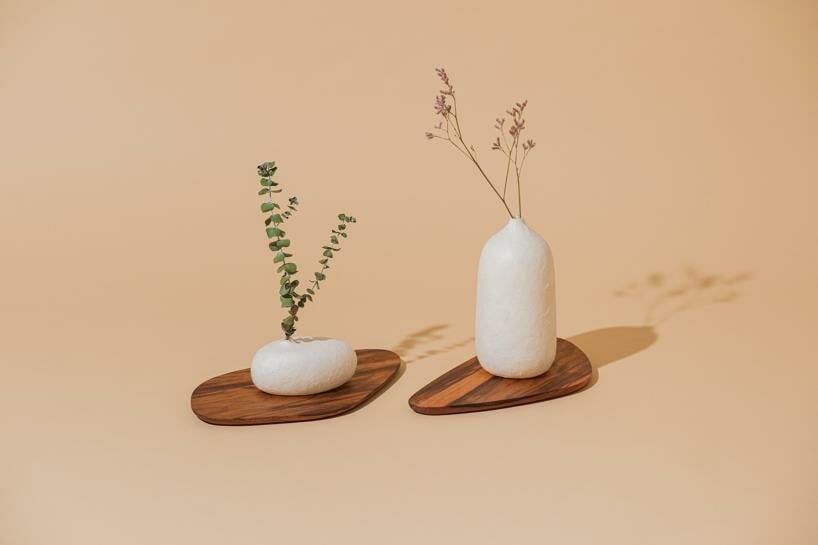exploring alternative craft methods with NTCRI’s CAMEL
Often drawing on generational knowledge and historical techniques, craftsmanship necessitates tradition and heritage – two things that are abundant in the Taiwanese craft scene. The National Taiwan Craft Research and Development Institute (NTCRI) takes a bold step toward merging this rich cultural tapestry with technological advancements, giving rise to the Craft Application with Material Experience Lab (CAMEL). Composed of a multinational research team, the lab delves into the intricate interplay between humans, raw materials, and the final products. With projects involving 3D printing, silk production, and fish-based biomaterials, the lab has released compelling projects that demonstrate the country’s rich resources and history of craft.

the National Taiwan Craft Research and Development Institute (NTCRI) has developed projects utilizing of 3D printing, silk production, and fish-based biomaterials
all images courtesy of NTCRI
Since 2018, NTCRI’s CAMEL has worked with its ‘Self-manufactured Craft Material Program’ to revitalize the development and application of materials local to Taiwan. In exploring concepts like scientific methodologies, circularity, and self-manufacturing, the group has launched several initiatives that seek to advance Taiwanese craftsmanship. The group unveiled its craft-focused research projects at Maison&Objet Fall 2023, exhibiting the evolving facets of craftsmanship within the country.

NTCRI has assembled the Craft Application with Material Experience Lab (CAMEL) – a multinational research team focused on the interplay between humans, raw materials, and products
3d printed ceramics, Silk, & Fish Scales for a new type of product
Shown at the Paris trade show, NTCRI invited metal craft artist Yung-Ling Tseng to explore the potentials of 3D printed ceramics. The work resulted in necklaces, essential oil bottles, and sake cups that merged this technical technique with traditional metal mediums. With this digital fabrication technology, Tseng was able to achieve intricate designs, elaborate patterns, and striking contrasts.

in Paris, NTCRI invited metal craft artist Yung-Ling Tseng to explore the potentials of 3D printed ceramics
Within NTCRI, biomaterial experimentation has inspired a wave of creative exploration. In 2020, CAMEL’s field research in the Taiwanese countryside uncovered the environmental impact of waste pollution from the fishing industry. Responding to this, Elvin Karana, the head of the Materials Experience Lab, led five Taiwanese creators on an investigation into the potential of translucent and resilient fish scales. The team created an exclusive 3D printer for fish scale pulp. They later went on to broaden their material options to include fish scales from Taiwan’s tilapia and giant grouper. The application of this technology resulted in digital fabrication scholar Li Jian You’s vertical garden planter, made from printed fish scale pulp infused with green tea powder.

a team within NTCRI creates an exclusive 3D printer for fish scale pulp
NTCRI also invited creators to journey into Taiwan’s silk farms, exploring the intricate process from silkworm rearing to silk reeling. The observations here were embodied in the group’s creation of silk-glued glass and silk paper. Later, the group built on these discoveries by combining silk with plant dyeing and three-dimensional shaping techniques. The result of this experimentation was shown at Maison&Objet Paris 2023 with a set of three white bottle ware pieces adorned with silk paper embellished with yellow silk.

NTCRI invited creators to Taiwan’s silk farms, exploring the intricate process from silkworm rearing to silk reeling











